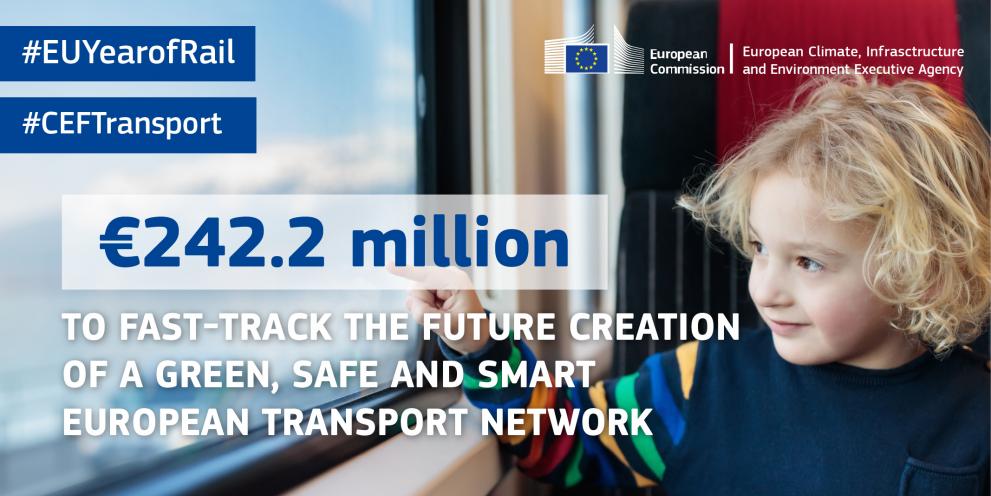
The EU is doubling down on its commitment to delivering a transport network that is environmentally performant, safe for its users, and driven by smart solutions by supporting €242.2 million 68 project proposals for studies that will lead to future infrastructure improvements. Once finalised, the projects will help to build missing transport links across the continent, support sustainable transport and create jobs. The projects will receive funding through the Connecting Europe Facility (CEF), the EU’s grant scheme supporting transport infrastructure.
Projects focusing on EU climate objectives
The EU continues to focus its attention on projects that will help it deliver on its climate objectives as laid out in the European Green Deal. Over half the supported projects create a more robust European railway network by boosting cross-border links and reinforcing essential sections. With 2021 being designated as the European Year of Rail (#EUYearofRail), the success of projects in this sector is of particular significance. Inland waterway transport and maritime ports are also boosted via infrastructure improvements to answer future capacity challenges and install an onshore power supply for ports to cut emissions from docked ships.
“This week we adopted important legislative proposals that will help the EU reduce net greenhouse gas emissions by at least 55% by 2030. The studies that we are supporting today via the Connecting Europe Facility contribute to the same aim. They are a starting point for many projects that will help accelerate the transition to a smart and sustainable transport network. Looking ahead, we are going to release new funds worth €30 billion for transport, digital and energy projects for 2021-2027 via the Connecting Europe Facility programme for 2021-2027, bringing us closer to achieving our European Green Deal goals.”
~ Adina-Ioana Vălean, EU Commissioner for Transport
The EU will support studies necessary for the realisation of future rail infrastructure projects located on the trans-European transport (TEN-T) core network with €181.4 million (37 projects). These include improving the connection to the Fehmarn Belt project, which links Germany and Denmark via a new underwater tunnel and implementing high-speed rail connections (for instance, between Budapest and Vienna).
“We are continuing via these new projects to lay the groundwork for the future improvement of the European transport infrastructure network. This latest batch of EU co-funded projects will eventually lead to improved cross-border links, boosted co-modality and an overall greener EU transport sector, in line with the objectives of the European Green Deal.”
~ Dirk Beckers, Director of the European Climate, Infrastructure and Environment Executive Agency (CINEA).
Background
The projects selected for funding followed the launch of a competitive call for proposals in late 2020 in all EU Member States. The EU’s financial contribution comes in the form of grants, with different co-financing rates depending on whether the project is located in a country eligible for Cohesion Fund support or not.
Under the CEF Transport programme, €23.4 billion has been made available for grants from the EU’s 2014-2020 budget to co-fund TEN-T in the EU Member States. Since 2014, six waves of calls for project proposals have been launched supporting 955 projects for a total amount of €23 billion in the transport sector.
Next steps
Following the EU Member States’ approval of the selected projects, the Commission will adopt formal financing decisions in the coming weeks. The European Climate, Infrastructure and Environment Executive Agency (CINEA) will then start preparing the grant agreements with the project beneficiaries.
Source: European Commission



